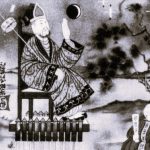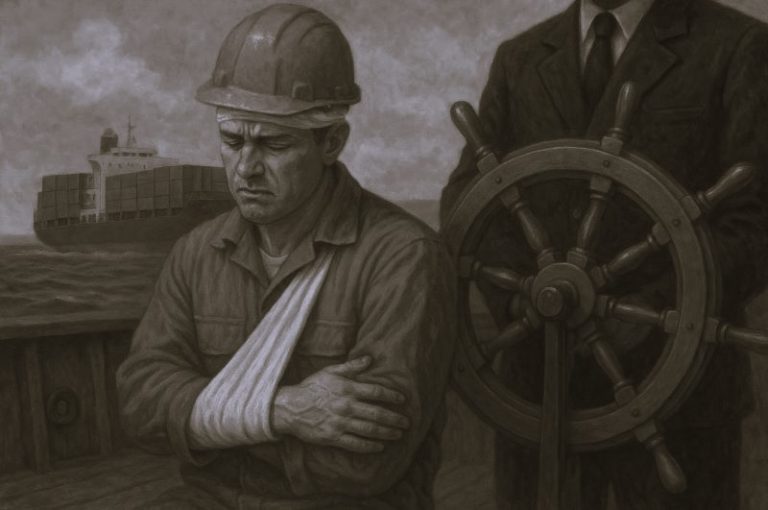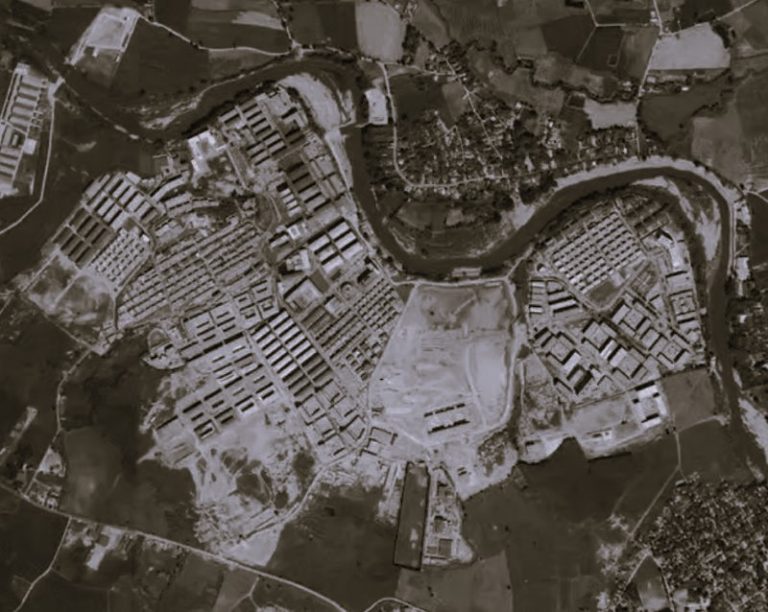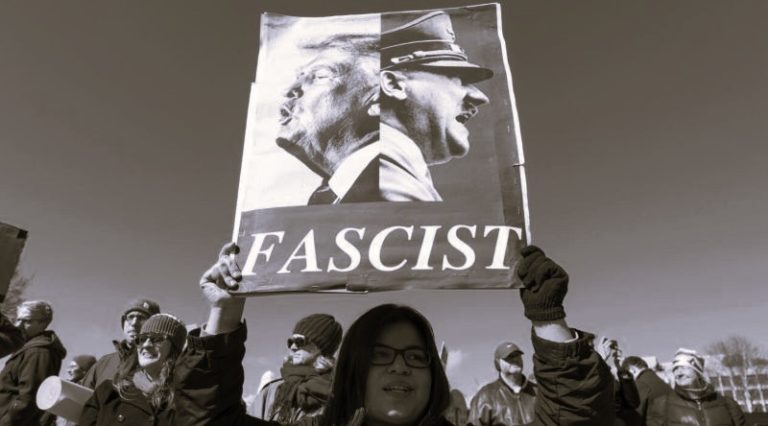
The year 1830 was important for a distant event: the bombardment by French forces of the Barbary Power, Algiers.

By Dr. Timothy Mason Roberts
Professor of History
Western Illinois University
Aside from the significance of Alexis de Tocqueville and other famous French observers of early American democracy, historians of French-American relations in the first part of the nineteenth century have tended to focus more on the countries’ conflicts than on their convergences and exchanges.[1] This is especially true concerning ambition shared by French and American state-builders of “territorial empire.” American congressmen used this phrase as early as 1827 in development of policy towards Chickasaw and Choctaw peoples, and French legal scholars adopted it in surveying the imperial jurisdiction of the Napoleonic Code by 1844.[2] By 1850 the two countries had launched or intensified efforts to clear land in the Southeastern United States and Algeria, respectively, of their native inhabitants in order to enable commercial agriculture for white settlers. This essay traces comparisons made by American and French commentators in the shaping of policy towards indigenous peoples in those areas, and particularly shows the role of the French conduct of war in Algeria on Americans’ perceptions of their own conduct and challenges in territorial expansion.
The year 1830, familiar to American historians for the passage of the Indian Removal Act, was also important for a distant but analogous event: the bombardment by French forces of the Barbary Power, Algiers. France decreed that its mission, similar to what Napoleon Bonaparte had proclaimed earlier in Egypt, was to liberate the Algerian people from the tyranny of the Dey of Algiers.[3] In substance, the intervention signaled relocation and renewal of French colonial interest after the losses of its New World colonies. Like the United States had done twice previously, France also attacked Algiers to eliminate its piracy and the shameful tribute the Dey demanded to allow Mediterranean trade.[4]
After their Barbary Wars, Americans quickly evacuated their forces from North Africa, whereas the intervention of Charles X began a French military occupation that would last well over a century. Yet French Algeria continued to connect France and the United States, and in more ways than simply its inspiration for artists’ portrayal of Oriental allure and savagery, as postcolonial scholars have emphasized.[5] Alexis de Tocqueville, among other French writers, hoped that Algeria could come to resemble the American frontier, as both an area for Euro-American rural democracy, and as the key to France’s national destiny.[6] A French imperialist troubled by France’s sputtering imperial history, Tocqueville studied American developments and policies as a model for Algeria.
American observers, meanwhile, looked upon French Algeria not as a model for peaceful settler agriculture, but as a warning about the challenges of territorial conquest. American attention became riveted by French measures to capture Emir Abdelkader El Djezairi, the religious and military leader of Algerian resistance to French occupation. Aware of potential Franco-American animosity over the lingering controversy of spoliation claims dating from the Napoleonic Era, in 1836 Abdelkader audaciously contacted a U.S. consul in Morocco to offer the United States possession of any Algerian port it might choose, on condition of U.S. alliance with the Algerian’s regime.[7] As the Spoliation Controversy dating from the Franco-American Quasi-War (1797-1801) had been only recently resolved, the United States abstained from direct involvement in the surging French-Algerian conflict. James Leib, the U.S. consul in Tangier who declined Abdelkader’s offer, wrote that “any…encouragement [by the United States] to the Barbary Powers for hostile action against Europeans would be adverse…to the progress of civilization.”[8]

As Leib’s comment suggests, U.S. policy-makers were hardly drawn to Abdelkader’s invitation to occupy North Africa, because they associated him with the notorious Barbary Powers. Yet up to his eventual capture and imprisonment in France in 1847, Abdelkader’s image and irregular kind of warfare had a broad impact on American opinion and policy-making. American reports about French political debates and military efforts to subdue Abdelkader show how, on the one hand, the Algerian leader helped Americans rationalize their own, nearer colonial war at the time, the so-called Second Seminole War. But Abdelkader also challenged American commentators’ assumptions about who was “civilized” and who was “savage,” reversing the traditional or stereotypical association of those terms, and thus alerted Americans to both the means and the costs of territorial conquest. Yet Americans’ awareness of the harsh similarities of their own and French ways of territorial empire-building hardly discouraged their interest or investment. Through their interest, generated largely through newspaper reports and literary editorials, in the exploits of Abdelkader, Americans became aware of the unromantic aspects of war against indigenous peoples. The story shows the complicated role indigenous peoples could play, on both sides of the Atlantic, in the first part of the nineteenth century.
Alexis de Tocqueville returned to France from America in 1832, soon after French forces began to occupy Algeria. He considered settling in Algeria himself, but instead became a colonial expert in the Chamber of Deputies, to which he was elected in 1839. Tocqueville believed that an agricultural proprietary class was the most stable element of democratic society, and was the key to successful American westward expansion. He prescribed policy in Algeria based on how it might enable French and other European settlers to replicate America’s peculiar success in developing territorial democracy – in Algeria and not in France itself, whose people, he believed, were too apolitical and too accustomed to traditional government centralization.[9]
Thus, when Tocqueville visited North Africa in 1841, it was the occasion for his famous remark on how Algiers was coming to resemble Cincinnati, Ohio in its ethnic diversity and frantic fledgling construction industry.[10] But more than Algiers’s supposed similarity to an American frontier town, Tocqueville’s comment belied how probably three-quarters of the early European civilians who tried settling in (or were exiled to) Algeria remained in or near fortified cities. Europeans’ failure to become dispersed yeoman farmers was a reality of the war between the French occupying army and Abdelkader’s resistance forces.[11]
Abdelkader emerged as a formidable adversary of France in 1832, using surprise mounted attacks, persuading or strong-arming rival tribes to join his alliance, and enforcing Arab boycotts of French commerce. In 1837 French General Thomas Bugeaud agreed by the Treaty of Tafna to concede most of Algeria other than its port cities to Abdelkader’s rule. Abdelkader’s short-lived regime brought uniform taxation and representative tribal government to North Africa for the first time. But when a French expedition violated the treaty in 1839, Abdelkader proclaimed a jihad. In December of that year King Louis-Philippe retaliated by declaring that Algeria was “a land forever French,” and ordering its complete conquest.[12] Bugeaud resorted to harsh tactics of the razzia to accomplish this, plundering fields, crops, and livestock, and episodically massacring civilians.[13] The nadir was reached in 1845, when a French officer Colonel Amable Pélissier, having cornered a resistant Algerian tribe in a cave, ordered his men to build a fire at its mouth to asphyxiate its occupants. The incident became internationally controversial, partly because Bugeaud defended Pélissier’s action, and the American press focused on the story.[14] Abdelkader eventually fled to Morocco, but under French pressure Sultan Abd al-Rahman withdrew his protection, and Abdelkader surrendered in 1847.[15]

In Democracy in America Tocqueville had observed how the U.S. government could effectively protect its citizens “even in the deepest wilderness” simply by punishing native peoples suspected of committing crimes by excluding them from trade in towns on which they were dependent.[16] But Abdelkader’s effective wielding of religious and military authority – Tocqueville condemned the Algerian as “a sort of Muslim Cromwell” – to resist French colonization of North Africa thwarted effective or rapid application of this alleged American technique there.[17] Besides economic warfare, Tocqueville therefore endorsed all manner of violence against any aspect of Algerian sedentary or interdependent life that was vulnerable. Farming, colonial trade, even the arrangement and organization of extended families could be targeted. Tocqueville argued,
I have often heard men whom I respect, but with whom I do not agree, find it wrong that we burn harvests, that we empty silos, and finally that we seize unarmed men, women, and children. These, in my view, are unfortunate necessities, but ones to which any people who want to wage war on the Arabs are obliged to submit.[18]
In effect, Abdelkader compelled Tocqueville to rationalize the French methods of “total war” as necessary to revitalize French imperialism and, ironically, to propagate French democracy. The kind of dynamism of Islam and effective opposition posed by Abdelkader had been absent among the Native American peoples whom Tocqueville had witnessed in the United States. Drawing on his American experience, Tocqueville had initially envisioned that Algeria could be agriculturally transformed and assimilated to France with little resistance by indigenous peoples. But the two frontiers’ differences showed that democratization of territories was hardly inevitable or nonviolent.
American commentators, for their part, rarely speculated about Algeria’s prospects for agricultural democracy in the first decades of French occupation. One report published soon after the French arrival noted a plan for Bedouin Arabs to be taken to France to be taught to farm, and then repatriated to Algeria, presumably to take up and spread cultivation de la manière française.[19] But after Abdelkader’s emergence, news commonly focused on the irony that France’s methods of colonizing North Africa seemed to be dishonoring western civilization, reversing the putative roles of civilizer and savage. One newspaper, for example, reported “The success with which Abd el Kader has contended against the armies of the French in Algeria, excited the admiration of all Europe.”[20] Another periodical, meanwhile, published a poem whose first and last stanzas read,
Well done, my gallant Arab chief!
Lord of a steed and lance,
Lead on your desert-born, and brief
Must be the sway of France;
Teach her, that Afric’s burning sands
Are ruled alone by flashing brands!…
What though ye bend at Mecca’s shrine,
Though call’d an Infidel;
What though your God’s no god of mine,
Fight on, and fight ye well!
For he who breaks a tyrant’s rod,
Need never fear the Christian’s God![21]
France had first justified invasion of Algeria partly because the Dey of Algiers was a tyrant. But with the rise of Abdelkader as a new face of Algiers, the tyrant in these examples of American public opinion became Gallic, not African.
Another account, likewise, emphasized not Algerian bravery but French savagery, an illustration of “the moral condition of the French army of Africa.” The story reported a French force’s capture, killing, and beheading of an Algerian chief, Sidi Embarak, second in command to Abdelkader. Embarak’s severed head, the American periodical noted, was covered with honey, salted, and carried to Algiers to be “served up at a soirée of Marshal Bugeaud.” Bugeaud was reported to have declined to eat “the head of the brave chief of the desert” and instead to have organized a military funeral.[22] Beheadings were an aspect of warfare practiced sporadically by both sides in Algeria, but American observers tended to focus on the French practice.[23] The story concluded sarcastically, “Marshal Bugeaud and his African heroes are getting a little in advance of the rest of Europe, and vindicating French claims to superior civilization in the art of war, as in the art of cookery.”[24]

Shortly after these critical, if sometimes sensational accounts, Robert Walsh, U.S. Consul General in Paris, filed a report for the Washington National Intelligencer, a more sober newspaper and organ of the Whig political party. Walsh described a June 1846 debate on military spending in Algeria in the French Chamber of Deputies. Walsh briefly noted arguments made by proponents of the French occupation of Algeria, for example, a speech by Foreign Minister François Guizot. Showing how French imperialists were keen to portray themselves as philanthropists, and putting American imperialists on notice about their conduct, Guizot argued, as Walsh reported, that in comparison to colonial wars in America and India, French conduct in Algeria was humane and self-restrained.[25]
But generally Walsh highlighted deputies’ speeches and quoted French newspapers that recounted the costs and casualties of the French occupation. [26] These included a speech by Tocqueville that condemned General Bugeaud’s military “dictatorship” because it delayed the introduction of agricultural colonization and civilian government. To make the point that North Africa was not yet Ohio, Tocqueville even cited a Swiss colonization society’s report that encouraged Swiss people to immigrate even to “the wildest parts of North America” before Algeria. Regarding Algeria, Tocqueville was of two minds, encouraging both total war against Algerian resistance to French rule, and the rapid installation of democratic institutions by French administrators and European settlers. U.S. Consul Walsh, unsurprisingly, reported to Americans the details of the French debate that referenced America. His overall emphasis, however, was on the French government’s self-doubt and the apparent debasement of renewed French imperialism.[27]
Walsh’s selective report, however, obscured the real outcome of the debate in the French legislature over Algeria. This was a decision to increase the size of the Armée d’Afrique to more than 100,000 French and native soldiers and to initiate long-term plans for civilian colonization.[28] This outcome would have hardly surprised American readers convinced that France as a European power was willfully rapacious. Meanwhile, beginning with President Thomas Jefferson, U.S. statesmen had encouraged native peoples to assimilate by embracing agriculture and trade, as a philanthropic means not to perish but to “regain the continent that their forefathers had recklessly forfeited.” Through this encouragement and the idea that the country was established on uncultivated, sparsely populated land, vacuum domicilium, exponents of American “exceptionalism” were eager to believe that their country’s expansion could occur without such military buildup or human cost.[29]
But perhaps Walsh’s commentary and similar reports about Algeria also served to sober Americans about the sanguinary means and necessary investment to make any “civilized” power’s expansion possible, not only France’s. This reaction manifested in both American public opinion sources and in U.S. policy-making. Its attitude was suggested by Joel Poinsett, an American Francophile, the first U.S. Minister to Mexico, and then Secretary of War under President Martin Van Buren. In 1847 Poinsett wrote that the United States in its military deployments should avoid entrapment in “another Algeria.”[30] Poinsett wrote this warning amid the U.S. war with Mexico. He feared the “Guerilla warfare” and “fanaticism” of Mexican people, which he worried was “formidable” and could thus visit on Americans burdens similar to “the waste of French blood and treasure in Algeria.”[31] French Algeria, in other words, provided a cautionary tale for the scope of American ambition to invade and certainly to try to occupy its neighbor to the South. Mexico, like Algeria, was an area appealing for exotic fantasy, but also treacherous in its conduct, and backwards in its religious superstitiousness.
Poinsett’s perspective on Mexico, viewed through the lens of French struggles to pacify Algeria, was shaped by his experience presiding over removal of most of the native peoples of the American Southeast as well as prosecution of the Second Seminole War (1835-1842). This often forgotten conflict was possibly the “sole exception to the successful execution of the [U.S.] policy of Indian removal,” and perhaps the longest and most costly war the United States ever waged against Native Americans.[32] Poinsett, in fact, studied French practices in Algeria to help develop American strategy against native peoples resistant to removal. Beginning in 1839, he sent several Americans to France to study French cavalry tactics deployed in North Africa. One U.S. officer, Philip Kearny, who later achieved fame in the U.S.-Mexico and Civil Wars, participated in several combat engagements with the Chasseurs d’Afrique.[33] Kearny returned to the United States with a report that praised how the French combatted Abdelkader’s resistance, and a translated copy of the French cavalry manual, which the War Department issued in 1841.[34]

Meanwhile, popular opinion was suggested by an American magazine’s essay that expanded on Poinsett’s concern that the United States be vigilant to keep conditions in French Algeria from crossing the Atlantic. An essay in Littell’s Living Age that compared the circumstances of the United States, France, Russia, and Britain found that these powers together “represent[ed] the side of civilization as against barbarism.” Each country espoused an ideology of a “mission to civilize.” All had disciplined armies, and together held a near monopoly on gunpowder, “which multiplies the power of the disciplined body as against the undisciplined nation.” Against these respective powers stood arrayed the Seminole, “the painted savage,” “the marauding [Algerian] African,” the “Caucasian [Circassian] bandit,” and the “effeminate Asiatic” tribes of Central Asia.[35] Littell’s thus placed the United States on a spectrum of ambitious western powers, rather than insisting on its exception to them.
The essay’s point, in fact, was that the various “representatives of barbarism” were offering stubborn resistance to conquest, defying the science and progress allegedly behind the western powers’ mission to conquer. Regarding the Second Seminole War, the essay claimed that the United States had “triumphed” over the Seminoles, but still emphasized the war’s mediocre aspects. It attributed U.S. success in the war to a disparity of population – “fourteen millions of men on one side, and eight thousand on the other.” Despite Americans’ statistical advantage, “the war against the miserable Indians and…a few runaway negroes…has been ingloriously conducted”: “There is not in the history of wars among the civilized nations a parallel for the wantonness, imbecility, and corruption which distinguish this humiliating, dishonorable, infamous crusade.” By 1839 the Second Seminole War had cost half as much as the War of 1812 with Britain. The war with Britain had been an epic conflict that, in contrast, the essay asserted, had covered the U.S. army and navy “with glory” and “achieved an honorable peace.” Meanwhile “of Indian warfare we have not seen the end.” Postcolonial or settler war, waged against indigenous peoples whose ways of war bogged U.S. forces down and provoked them to adopt irregular or even “barbarous” tactics of their own, was ambiguous, expensive, and protracted, in contrast to how Americans in the 1840s remembered their earlier anti-colonial triumphs.[36]
A silver lining to this gray American cloud, however, was France’s “indiscreet” and “graver” situation in Algeria, the essay emphasized. There the theater of war was “hardly limited to the peninsula of Florida” and instead waged potentially across the entire African continent. In Algeria, after fourteen years of occupation, France had “only secured [sic] military fortresses and some lines of military communication.” The tools of “civilization” with which France initially hoped to subdue Algeria – technology, advanced military weaponry and discipline – had proven insufficient. France appeared poised to continue to balloon the supply of soldiers in Algeria. The American periodical noted that at the rate of deployment since 1830, there would be 300,000 French troops in North Africa in 1850. French leaders had even resorted to savage steps to win the territorial war – including, the writer speculated, the assassination of the Emir Abdelkader – possibly “the greatest man of his generation,” “upon life…much depends.”[37]
Thus Abdelkader’s heroic image served several conflicting purposes, in this report and potentially broadly within American opinion of early French Algeria. At this time, when Americans’ status in the Atlantic world was not certain and popular resentment of France and Britain was widespread, non-European adversaries – even, in this case, a Muslim jihadist – could offer Americans vicarious defiance of Europeans’ assertions of power.[38] But Abdelkader, though in distant North Africa and in his bravery stereotypically unrepresentative of Arab Algerians, also ennobled and to some extent legitimized indigenous resistance to the U.S. Indian Removal Policy.[39] This was true particularly in the apparent absence of American military ‘heroes’ deployed to enforce the policy in the Florida Territory – whatever might be the cost of that deployment and conquest.[40]
Alexis de Tocqueville had famously observed the status of native peoples during his American tour post-conquest – after European settlement had, over two centuries, caused their population in North America to decline drastically to a minority. Thus, in Democracy in America, he emphasized the native peoples’ apparent inevitable domination by American would-be democrats.[41] Concerning Algeria, Tocqueville was impatient that American-style conditions emerge, though over less time than had taken in America. This prospect justified, if necessary, Algeria’s destruction.[42] Conversely, American observers of the early republic era, witness to the French conquest of Algeria as it unfolded, emphasized the domestic and military problems attending French imperial construction, not as developments Americans should scoff at, but as an example they should study. France’s African quagmire hardly discouraged Americans from the prospect of territorial conquest in North America, but did help jar them from assumptions that territorial conquest could somehow resemble earlier heroic ways of war.[43] Thus in the first decades of France’s desert war in Algeria, some Americans became less convinced than the foreigner Tocqueville that they possessed any unique ability to establish a territorial empire – but, because of the Algerian lesson, they felt more prepared to accomplish it.
Notes
- Aurelian Craiutu and Jeffrey Isaac, eds., America Through European Eyes: British and French Reflections on the New World from the Eighteenth Century to the Present (University Park: Pennsylvania State University Press, 2009); George Wilson Pierson, Tocqueville in America (Baltimore: Johns Hopkins University Press, 1996); Henry Blumenthal, A Reappraisal of Franco-American Relations, 1830-1871 (Chapel Hill: University of North Carolina Press, 1959); Robert Thomas, “Andrew Jackson versus France: American Policy toward France, 1834-36,” Tennessee Historical Quarterly 35, no. 1 (1976), 51-64.
- 3 Cong. Deb. 74 (1827); M. Pont, “Traité de Proudhon, sur l’état des personnes et sur le titre préliminaire du Code civil…par M. [Auguste] Valette,” Revue de législation et de jurisprudence 19 (January-April 1844), 673-677, esp. 675.
- The French action has been explained whimsically as retaliation for the Dey’s striking a French consul with a fly whisk over France’s failure to pay for Algerian wheat it had received. Benjamin Stora, Algeria, 1830-2000: A Short History, trans. Jane Marie Todd (Ithaca: Cornell University Press, 2004), 3.
- Paul Silverstein, Algeria in France: Transpolitics, Race, and Nation (Bloomington: Indiana University Press, 2004), 41; Benjamin Brower, “The Amîr ʿAbd Al-Qâdir and the ‘Good War’ in Algeria, 1832-1847,” Studia Islamica 106, no. 2 (2011), 169-195, esp. 173-174; Frank Lambert, Barbary Wars: American Independence in the Atlantic World (New York: Hill and Wang, 2007), 157-158.
- For example, Paul Ackerman, American Orientalists (Paris: Art Creation Realisation, 1994); Douglas Little, American Orientalism: The United States and the Middle East since 1945 (Chapel Hill: University of North Carolina Press, 2008), 12; Victoria Thompson, “’I Went Pale with Pleasure’: The Body, Sexuality, and National Identity Among French Travelers to Algiers in the Nineteenth Century,” in Patricia Lorcin, ed., Algeria & France, 1800-2000: Identity, Memory, Nostalgia (Syracuse: Syracuse University Press, 2006), 18-32; Edward Said, Orientalism (New York: Vintage, 1979), 123-126, 337.
- Two notable observers besides Tocqueville who saw possible connections between the American and French frontiers were Michel Chevalier and Eugene Bodichon. See Emma Deputy, “Ideologies of Development in French Algeria: Saint-Simonians, Manifest Destiny, and Globalization,” in Toyin Falola and Danielle Sanchez, eds., African Culture and Global Politics: Language, Philosophies, and Expressive Culture in Africa and the Diaspora (New York: Routledge, 2014), 17-36; and Benjamin Brower, Desert Named Peace: The Violence of France’s Empire in the Algerian Sahara, 1844-1902 (New York: Columbia University Press, 2013), 166-170.
- On the Spoliation Controversy see Robert Remini, Andrew Jackson: The Course of American Democracy, 1833-1845 (Baltimore: Johns Hopkins University Press, 2013), 201-288.
- James Leib to Secretary of State, 30 April 30 1836, in Despatches from U.S. consuls in Tangier, 1797-1906, General Records of the Department of State, U.S. National Archives Microfilm T61/5.
- Jennifer Pitts, “Introduction,” in Alexis de Tocqueville, Writings on Empire and Slavery, ed. Jennifer Pitts (Baltimore: Johns Hopkins University Press, 2001), 19-28.
- Alexis de Tocqueville, Writings on Empire and Slavery, 36.
- Brower, Desert Named Peace, 42-43; John Ruedy, Modern Algeria: The Origins and Development of a Nation (Bloomington: Indiana University Press, 2005), 68-71; Stora, Algeria, 1830-2000, 5. Algeria was declared an integrated department of France in 1848.
- Quoted in Todd Shepard, Invention of Decolonization: The Algerian War and the Remaking of France (Ithaca: Cornell University Press, 2008), 20.
- Brower, Desert Named Peace, 34-50.
- “Soldiering,” Littell’s Living Age 6 (13 September 1845), 503; “French Africa,” American Penny Magazine and Family Newspaper 2 (14 February 1846), 27; “Abd-el-Kader and Pelissier,” Living Age 10 (25 July 1846), 184: “The Parisians denounce Abd-el-Kader for his recent murder of French prisoners. The barbarian killed them by sword and ball. Now, at the Cave of Dahra, Colonel Pelissier, blessed by the light of civilization, magnanimously used it as a torch” [excerpted from the British periodical Punch].
- Abdelkader and his family were imprisoned in France until 1852 then freed with great fanfare by Napoleon III; after touring France Abdelkader was exiled to the Ottoman Empire. He died in Damascus in 1883. “Abdel-Kader,” Dictionary of African Biography, eds., Emmanuel Akyeampong and Henry Louis Gates, Jr., 6 vols. (New York: Oxford University Press, 2012), 1:33-35; Raphael Danziger, Abd al-Qadir and the Algerians: Resistance to the French and Internal Consolidation (New York: Holmes & Meier Publishers, 1977); Wilfrid Blunt, Desert Hawk: Abd el Kader and the French Conquest of Algeria (London: Methuen and Co., 1947).
- Tocqueville, Writings on Empire and Slavery, 73.
- Ibid., 64.
- Ibid. 70. Paradoxically, upon the French defeat of Abdelkader in 1847 Tocqueville – like President Andrew Jackson, who in 1829 called for native peoples’ removal from the southeastern United States in order to save them from extinction – adopted a more philanthropic tone, warning now that the conquered Algerians, like the Native Americans, were doomed, absent militarily enforced separation. Tocqueville counseled the French Chamber of Deputies, Let us not, in the middle of the nineteenth century, begin the history of the conquest of America over again. Let us not imitate the bloody examples that the opinion of the human race has dishonored. Let us bear in mind that we will be a thousand times less excusable than those who once had the misfortune of setting them; for we have less fanaticism than they, and more of the principles and the enlightenment that the French Revolution spread throughout the world. Tocqueville, First Report on Algeria (1847), quoted in Brian Danoff and Louie Hebert, Alexis de Tocqueville and the Art of Democratic Statesmanship (Lanham: Lexington Books, 2011), 310-311. Tocqueville here probably meant to condemn the Spanish destruction of Native American society, not Anglo-American treatment. For Tocqueville’s view of separating white and native peoples see Tocqueville, Democracy in America, trans. Henry Reeve, 2 vols. (New York: George Adlard, 1839), 1:288; Seymour Drescher, Dilemmas of Democracy: Tocqueville and Modernization (Pittsburgh: University of Pittsburgh, 1968), 194; and Osama Abi-Mershed, Apostles of Modernity: Saint-Simonians and the Civilizing Mission in Algeria (Stanford: Stanford University Press, 2010), 102.
- “Miscellanies,” New-England Magazine 1 (September 1831), 277.
- Berkshire County Whig, 9 December 1846, quoted in Brower, “The Amîr ʿAbd Al-Qâdir,” 187.
- “To Abd-El-Kader,” Southern Literary Messenger 7 (October 1841), 732-733.
- “Dish of Glory,” Littell’s Living Age 2 (12 October 1844), 633-634; “Foreign News,” Gentleman’s Magazine 21 (January-June 1844), 82. At this time Bugeaud was governor-general of Algeria.
- Tocqueville, Writings on Empire and Slavery, 37; Barnett Singer and John Langdon, Cultured Force: Makers and Defenders of the French Colonial Empire (Madison: University of Wisconsin Press, 2008), 61. Bugeaud in fact later justified the beheading, writing that only public display of Embarak’s remains for three days before burial convinced Arabs that he, “who had so much influence over them,” was indeed dead. Count H. D’Ideville, ed., Memoirs of Marshal Bugeaud, from his Private Correspondence and Original Documents, 1784-1849, trans., Charlotte Yonge, 2 vols. (London: Hurst and Blackett, 1884), 2:99.
- “Dish of Glory.” Americans’ focus at this time on French, not Algerian atrocities contrasted with how much of the French press and soldiers described French violence “in the most euphemistic of ways.” William Gallois, History of Violence in the Early Algerian Colony (New York: Palgrave Macmillan, 2013), 98.
- “Algeria,” Littell’s Living Age 10 (1 August 1846), 240-244.
- Ibid. Walsh’s account included a retelling of Pelissier’s mass cave murder.
- Walsh had hosted Tocqueville in Philadelphia in 1831 and served as U.S. consul in Paris from 1844 to 1851, but became more critical of French politics over time. He endorsed the coup d’état of Louis Napoleon that ended the radical democratic movement of French Second Republic. Pierson, 475-476; Timothy Roberts, Distant Revolutions: 1848 and the Challenge to American Exceptionalism (Charlottesville: University of Virginia Press, 2009), 36.
- John Morell, Algeria: The Topography and History, Political, Social, and Natural, of French Africa (London: Nathaniel Cooke, 1854), 391; Jennifer Sessions, By Sword and Plough: France and the Conquest of Algeria (Ithaca: Cornell University Press, 2011), 171-173.
- Jefferson quoted in Hilde Restad, American Exceptionalism: An Idea that Made a Nation and Remade the World (New York: Routledge, 2014), 39. On the origins of Americans’ sense of entitlement and destiny to the ‘uncultivated land’ of North America see Jack Greene, The Intellectual Construction of America: Exceptionalism and Identity From 1492 to 1800 (Chapel Hill: University of North Carolina Press, 1997).
- Joel Poinsett, 18 January 1847, Georgetown, South Carolina, to Frances Tyrrell, in Joel R. Poinsett Papers, Henry D. Gilpin Collection, Historical Society of Pennsylvania.
- Poinsett quoted in J. Fred Rippy, Joel R. Poinsett: Versatile American (Durham: Duke University Press, 1935), 226-227.
- Jane Lancaster, Removal Aftershock: The Seminoles’ Struggles to Survive in the West, 1836-1866 (Knoxville: University of Tennessee Press, 1994), 18; Rippy, Joel R. Poinsett, 188.
- Philip Kearny, Service with French Troops in Africa (New York: n.p., 1844).
- Bayard Clark, New York, to Joel Poinsett, 22 September 1840; W. Irving Newton, Norfolk, to Joel Poinsett, 10 October 1840; in Joel R. Poinsett Papers; Bruce Vandevort, Indian Wars of Canada, Mexico, and the United States, 1812-1900 (New York: Routledge, 2006), 60; Stephen Zarr, Union Cavalry in the Civil War: From Fort Sumter to Gettysburg, 1861-1863 (Baton Rouge: Louisiana State University Press, 1985), 50.
- “New Instruments of Destruction – War between Civilized and Barbarous Nations,” Littell’s Living Age 2 (19 October 1844), 664-667 [excerpted from the British periodical Portfolio]. These references were to the Russo-Circassian War (1763–1864) and the First Anglo-Afghan War (1839-1842).
- Ibid. A correspondent of President Van Buren apprised the president that the Seminoles were “robbers, incendiaries, and assassins who pillage, burn, and murder at night and then escape into the swamps…. Congress should raise a new corps of 2,000 men” that “should use Indian fighting methods.” Alfred Bach, Tallahassee, Florida, to Martin Van Buren, 4 May 1840, Joel R. Poinsett Papers. For a perspective on U.S.-Indian wars that emphasizes the unusual extent of American brutality compared to other colonial powers, see Walter Hixson, American Settler Colonialism: A History (New York: Palgrave Macmillan, 2013). A broader perspective that contextualizes early U.S. wars with Native Americans, though without reference to French Algeria, is James Belich, Replenishing the Earth: The Settler Revolution and the Rise of the Angloworld, 1783-1939 (New York: Oxford University Press, 2009).
- “New Instruments of Destruction.” French Algeria remained under military authority until the establishment of the French Third Republic in 1870.
- As an example of this, concerning the phenomenon of the “Oriental” Hungarian Lajos Kossuth in America, see Timothy Roberts, “Lajos Kossuth and the Permeable American Orient of the Mid-Nineteenth Century,” Diplomatic History 39, no. 5 (2015), 793-818.
- Brower, “The Amîr ʿAbd Al-Qâdir,” 188-189.
- Ironically, one of the staunchest critics of inefficient U.S. military efforts to defeat the Seminoles was former U.S. President Andrew Jackson, whose supporters believed heroic for leading the first U.S. war on the Creeks in 1814. Remini, Andrew Jackson, 306-312.
- Tocqueville, Democracy in America, 1:335-353.
- Ewa Atanassow, “Nationhood-Democracy’s Final Frontier?” and Jennifer Pitts, “Democracy and Domination, Empire, Slavery, and Democratic Corruption in Tocqueville’s Thought,” in Ewa Atanassow and Richard Boyd, eds., Tocqueville and the Frontiers of Democracy (New York: Cambridge University Press, 2013), 178-201, 243-263, esp. 192-193, 251.
- On antebellum Americans’ faulty memory of earlier frontiersmen’s history of irregular or guerrilla tactics against Native Americans, see Vandevort, Indian Wars of Canada, Mexico, and the United States, 61.
Originally published by the Journal of the Western Society for French History 43 (2015) under the terms of a Creative Commons Attribution-NonCommercial-NoDerivs 3.0 Unported license.







